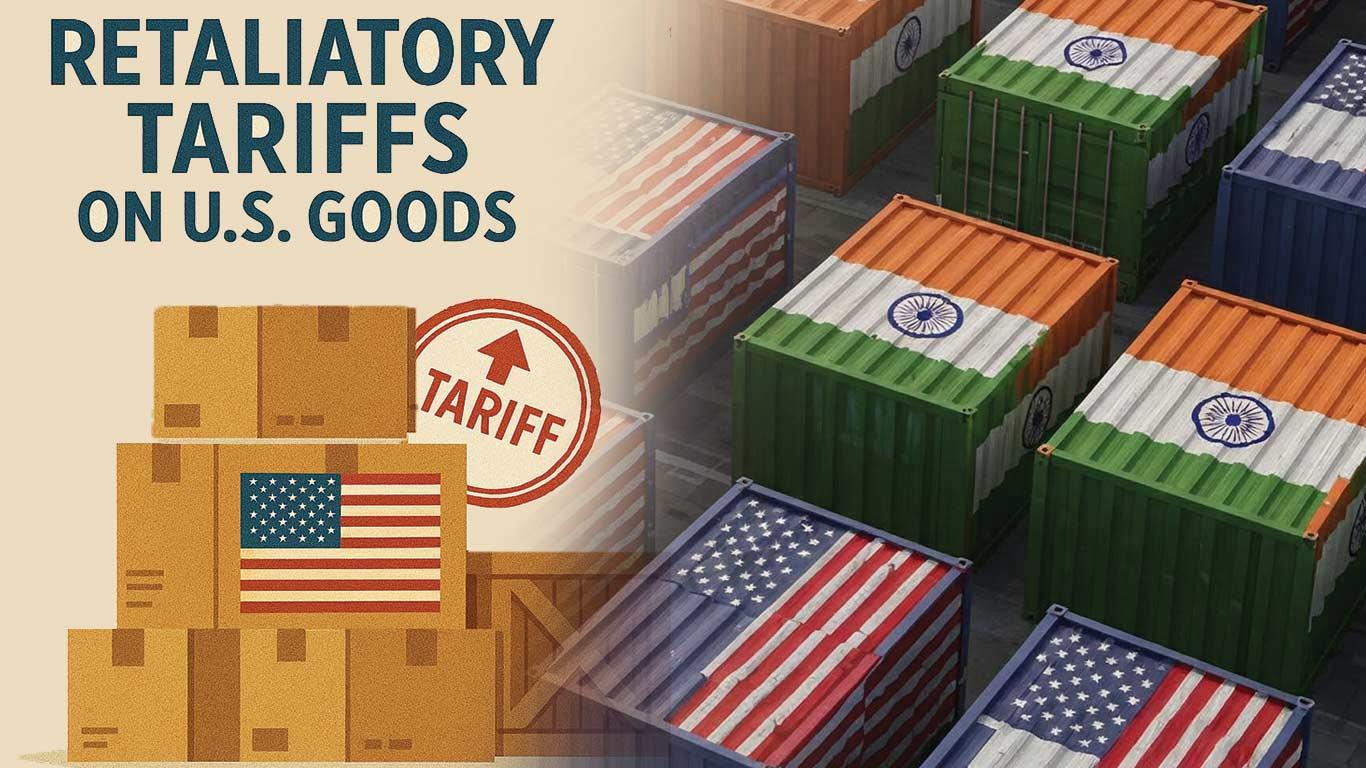
India Notifies WTO Of USD 3.8 Bn In Retaliatory Tariffs On U.S. Goods
The escalation comes as both countries engage in intensive discussions over a comprehensive trade deal.
In a formal notification submitted to the World Trade Organisation, India announced plans to impose additional import duties totalling USD 3.82 billion on US goods.
This represents a substantial increase from previous retaliatory measures and reflects India's response to heightened US tariff actions.
The latest round of Indian retaliation follows the United States' decision to double its tariffs on steel and aluminium imports from 25 per cent to 50 per cent on June 3.
This tariff increase affects approximately USD 7.6 billion worth of Indian exports to the US market, with the higher duties expected to generate USD 3.82 billion in additional tax revenue for the American government.
India's WTO notification reserves the country's right to suspend trade concessions or other obligations thirty days after the filing date. The notification represents India's formal process for implementing countermeasures under international trade rules.
The Indian government has criticised the US for failing to notify these tariff measures to the WTO as required under international trade agreements.
India contends that the US actions constitute safeguard measures that should have been reported to the global trade body and argues that the tariffs violate obligations under the General Agreement on Tariffs and Trade 1994 and the Agreement on Safeguards.
Additionally, India has noted that the United States has not engaged in mandatory consultations regarding these duties, as required under the Agreement on Safeguards. This procedural criticism adds another layer to the growing trade dispute between the two nations.
The current dispute builds on previous tariff battles between India and the United States. The initial 25 per cent additional duties on steel and aluminium were first imposed in March through a presidential proclamation during the Trump administration.
In response to those earlier measures, India had already notified the WTO on May 9 of plans to impose retaliatory duties worth USD 1.91 billion on US imports.
The trade tensions extend beyond steel and aluminium to the automotive sector. On July 4, India notified the WTO of proposed retaliation against 25 per cent additional US duties on automobiles and auto parts implemented on May 3.
These automotive tariffs affect USD 2.89 billion worth of Indian exports, with the US collecting approximately USD 723.75 million in additional duties. India's planned countermeasures aim to collect equivalent amounts through tariffs on US imports.
Historical precedent exists for such trade disputes between the two countries. During the first Trump administration in 2018, the US imposed 25 per cent additional duties on steel and aluminium, prompting India to retaliate in 2019 with additional tariffs on 21 US products including almonds, apples, chickpeas, lentils, walnuts, boric acid, and diagnostic reagents.
Both nations subsequently challenged each other's measures at the WTO. The current escalation represents a reversal of previous diplomatic progress.
The timing highlights the complex dynamics of international trade diplomacy, where countries simultaneously pursue deeper economic integration while defending their immediate commercial interests through retaliatory measures.
(KNN Bureau)
Legal Disclaimer:
MENAFN provides the
information “as is” without warranty of any kind. We do not accept
any responsibility or liability for the accuracy, content, images,
videos, licenses, completeness, legality, or reliability of the information
contained in this article. If you have any complaints or copyright
issues related to this article, kindly contact the provider above.
Most popular stories
Market Research

- Tappalpha's Flagship ETF, TSPY, Surpasses $100 Million In AUM
- Nigel Farage To Headline At UK's Flagship Web3 Conference Zebu Live 2025
- PU Prime Launches Halloween Giveaway: Iphones, Watches & Cash Await
- Cregis And Sumsub Host Web3 Compliance And Trust Summit In Singapore
- Luminadata Unveils GAAP & SOX-Trained AI Agents Achieving 99.8% Reconciliation Accuracy
- BTCC Exchange Announces Triple Global Workforce Expansion At TOKEN2049 Singapore To Power Web3 Evolution




















Comments
No comment